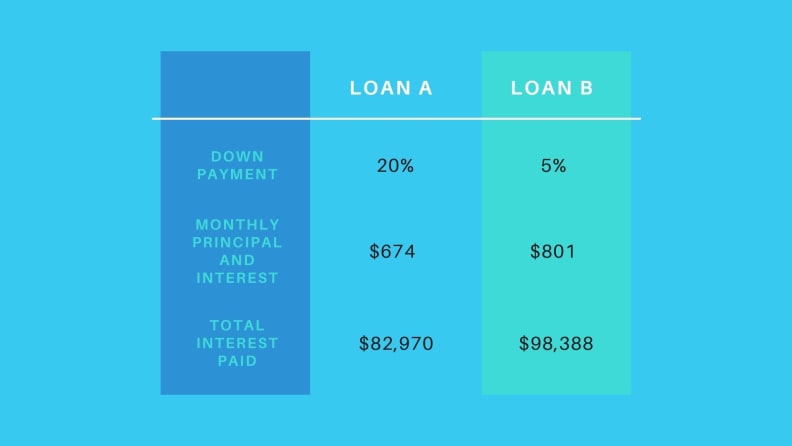6 questions to consider before you buy a house
Like, 'How much will maintenance costs run me every year?'
Products are chosen independently by our editors. Purchases made through our links may earn us a commission.
Buying a home is such a cultural milestone that it’s easy to assume it’s just something you’re supposed to do. But because a home is likely the biggest purchase you’ll ever make, it’s worth it to take your time figuring out if homeownership is the right move. (Or, if now is the right time for you.)
In a 2019 report by Bankrate.com, 63% of millennials had buyer’s remorse. Taking on an expensive mortgage payment and overlooking maintenance costs were two of the biggest drivers behind that regret.
Doing your research and checking your financial situation can help you get a feel for whether homeownership is the right move for you. Here are some questions to ask yourself to see if you’re ready for this stage of your life.
How’s my credit score?
When you apply for a mortgage, your credit majorly influences whether you qualify for the home loan and the interest rate you get. Credit score requirements vary with every mortgage program and from lender to lender.
Generally, a score of at least 500 to 580 can help you qualify for a mortgage through the Federal Housing Administration, and a score of 640 can help you qualify for a conventional loan.
A higher score—around 740 or more—could help you get a lower interest rate, which helps you save money. If your credit needs work, consider holding off on the mortgage application for at least a few months. Take steps to improve your credit score and put yourself on sound financial footing.
What can I afford?
Some financial experts say the price tag on your home shouldn’t be more than two to three times your household income. So if you and your partner together earn $150,000 a year, for example, then your home purchase shouldn’t cost more than $300,000 to $450,000. Of course, the price should be one that you’re comfortable with.
It’s also a good idea to figure out if the monthly payment fits into your budget. Use an online mortgage calculator to factor in costs like taxes and insurance. The entire monthly payment shouldn’t cost too much more than 30% of your monthly pretax income.
Do I have enough savings to pay the upfront costs?
Covering the down payment and closing costs is one of the biggest hurdles people need to clear when buying a home. In the Bankrate survey, 41% of respondents said they couldn’t afford these expenses. Down payment requirements vary with every mortgage program, ranging from about 3% to 20%. Closing costs typically come out to 2% to 5% of the home’s selling price.
Down payment programs can help you get in a home even with a low savings balance, though. These programs typically offer money toward a down payment or closing costs, and some even provide a private mortgage insurance waiver. Most have some kind of eligibility requirement, from minimum credit scores to educational workshops, so check the details before applying.
If you’ve saved up 3% to 5% of the average home price where you live, it’s a sign you might be ready to buy. But don’t forget that a bigger down payment will shrink your monthly mortgage payment and save you interest over the lifetime of your mortgage loan. Take a look at homes in your market to see what you can afford.
Here’s one example of how the size of your down payment can influence your monthly payments and the interest you pay, assuming a 30-year fixed-rate mortgage on a home worth $200,000 and an interest rate of 3%:

Does it make sense to buy right now?
One of the biggest perks of homeownership is that you’re building equity over time. So when you sell the home, you can keep any profit you make. But if you’re planning to move within three to five years, then it might not make sense to buy right now. When accounting for the closing costs you pay, any money you put into selling the home, and the capital gains tax, you might break even—or even lose money—in the home sale.
You should also consider your career stability. If you’re worried about losing your job in the next few months, then it’s not time to buy a house.
What’s the housing market like?
Recently, you may have heard we’re in a “seller’s market.” This happens when housing demand exceeds supply, which pushes prices higher and creates bidding wars in all corners of the country. Between the end of 2019 and the same period in 2020, U.S. home prices rose 10.8%.
If you’re set on finding your dream home during a seller’s market, just keep in mind that you’re at a disadvantage. You might not be able to include all of the contingencies you had in mind, and the price tag on your dream home might be higher than it would in a buyer’s market.
Am I prepared for the extra responsibility?
A home comes with more than a mortgage payment—there’s maintenance and repairs to consider, too.
There’s no “right” way to estimate your home maintenance costs, but here’s one rule of thumb some real estate experts use: Expect to pay about 1% to 3% of the home’s selling price per year on maintenance and repairs. So on a $300,000 home, that works out to $3,000 to $9,000 annually or $250 to $750 per month.
And you should always have some emergency funds set aside, too. So if you get laid off or the water heater blows up, the money’s there when you need it.
If you’re draining your savings account to cover the down payment and closing costs, consider waiting a few months until you have a bigger financial cushion.


